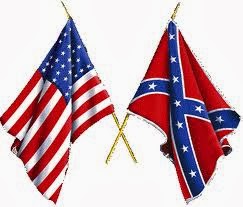Confederate/Union Strengths and Weaknesses
and First Battles-Ft.Sumter/Bull Run
During the beginning of the war the Confederacy had a better chance of winning because they had certain advantages over the Union. The South only had to defend their land, while the north had to conquer a huge amount of land. The south also had an advantage with their location. The South had to move their supplies and troops a much shorter distance than the Union did. The southern land was difficult to blockade and the South had experienced military leaders and a good moral. The North had a huge population against the South because only the free whites were included in the population.The North also got 800,000 immigrants and 180,000 African Americans during the war to boost their population. The Union had a huge advantage because they had command of the rivers, territorial waters, most of the banking, 85% of the factories, 70% of the railroads, 65% of the farmlands.
On April 12,1861 the civil war started at Ft.Sumter, South Carolina. Lincoln gave the south the decision on what they wanted to do. The South decided to attack and therefore the war officially started. Fort Sumter was captured by the Confederacy. On July 21,1861 30,000 Union troops marched to Bull Run Creek where the Confederates were stationed. The Union was super close to winning this battle but Stonewall's reinforcements arrived just in time for the Confederacy to win.
 |
| http://connect.gwu.edu/site/Calendar?view=Detail&id=100715 |






